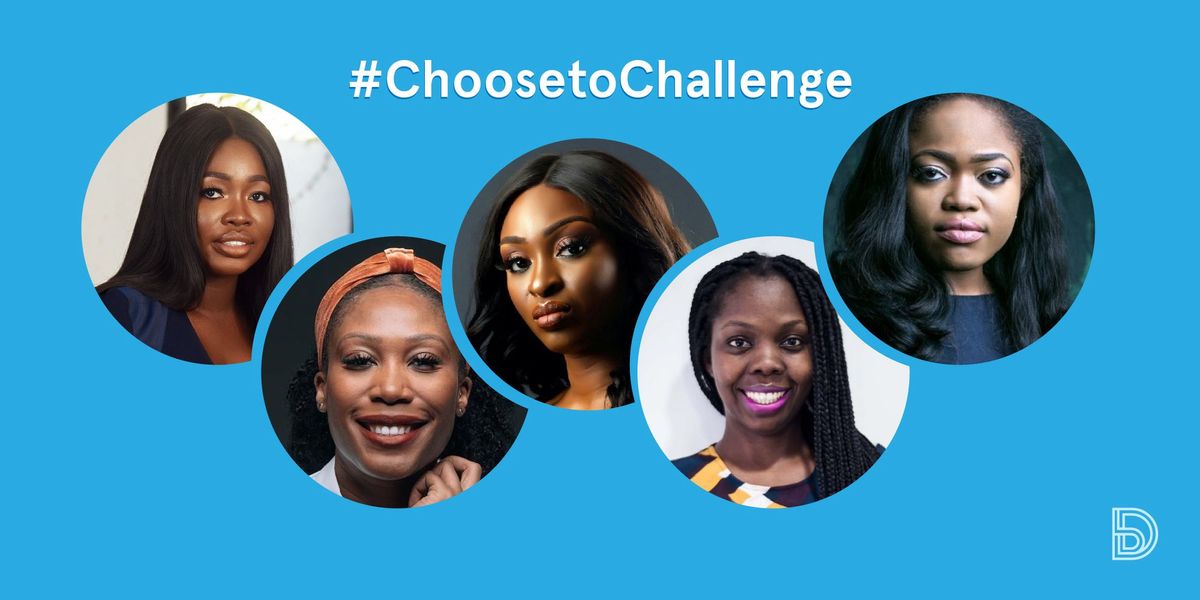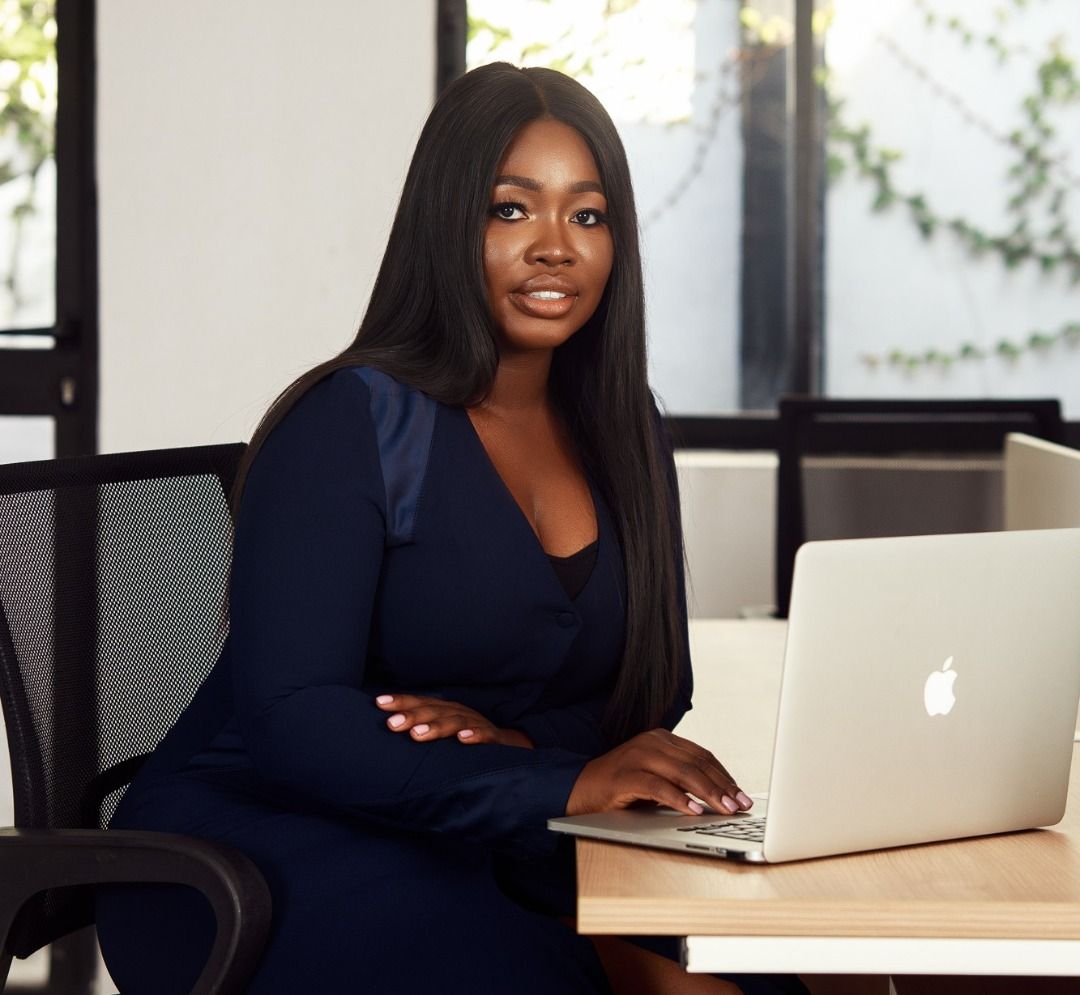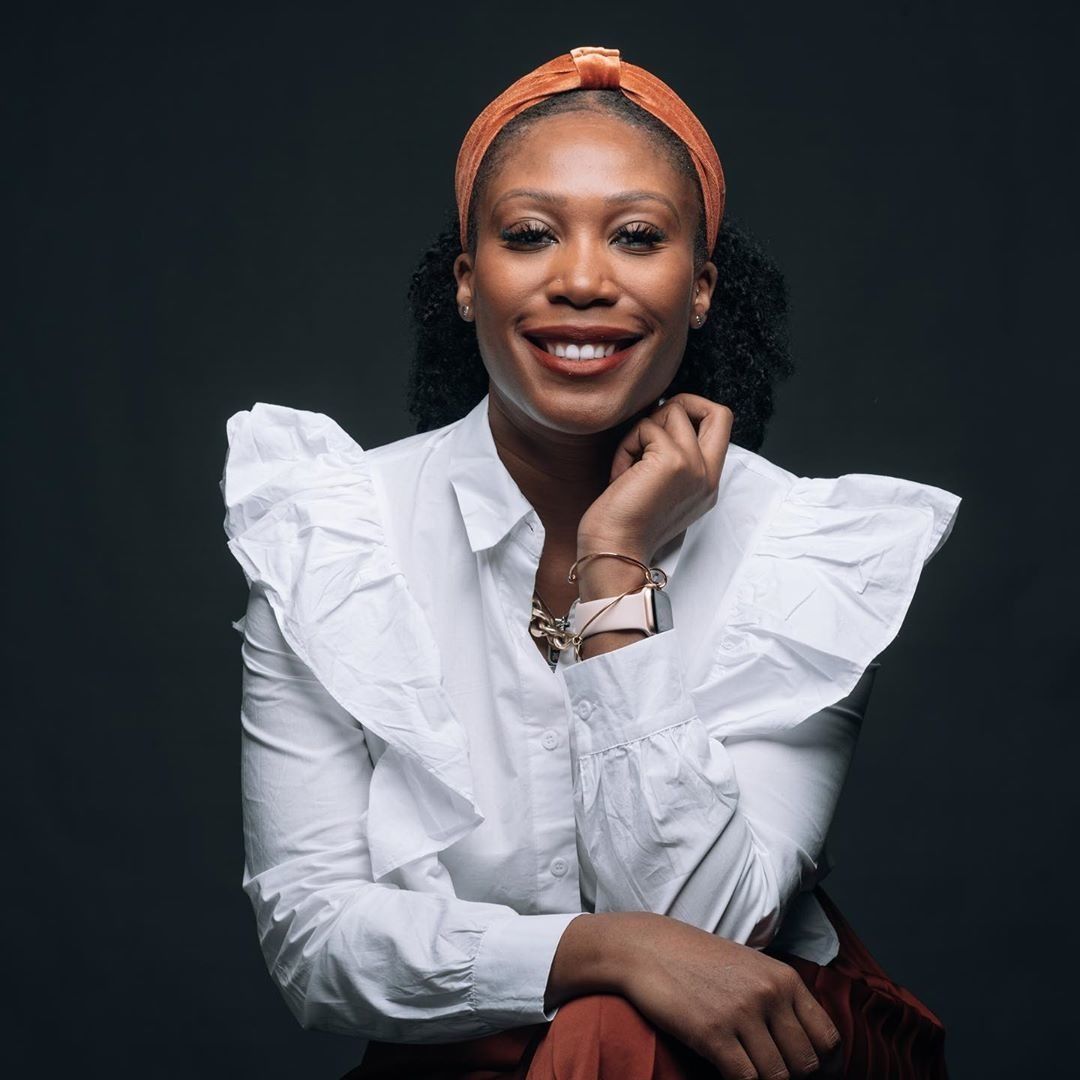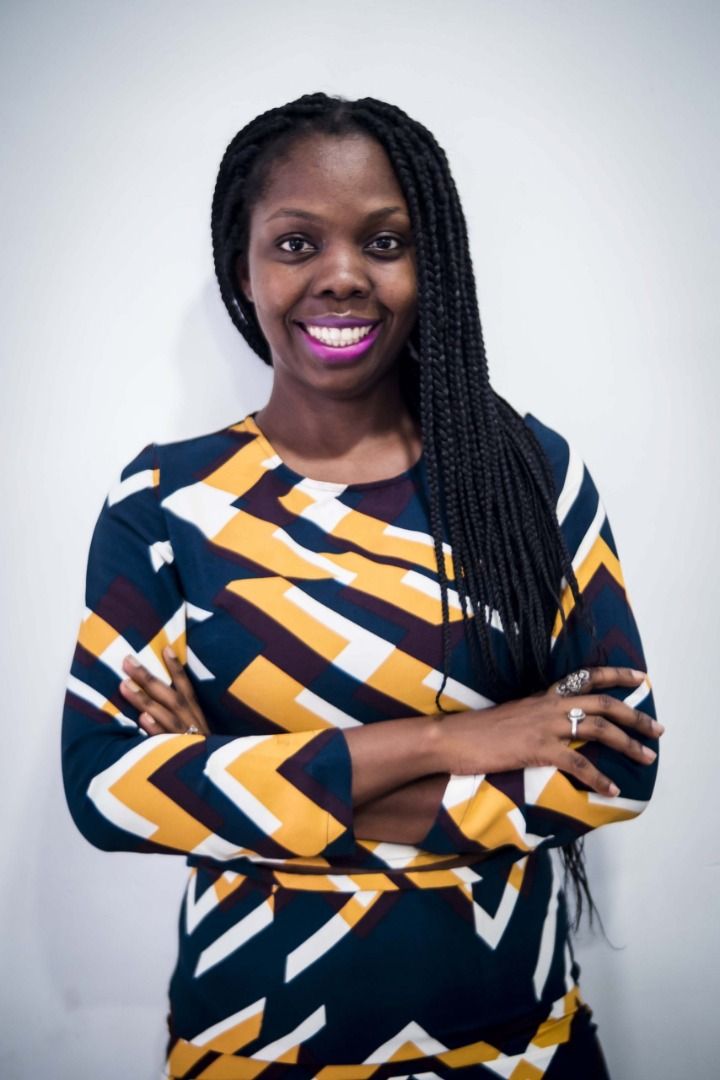IWD 2021: Celebrating African women while shining the light on women-focused opportunities
For #IWD2021, we feature five women doing amazing things in Africa. Also, we curate women-focused organisations for ladies in Africa to be a part of.

With the wide acceptance and penetration of technology across the globe, one would think there will be an equal representation of women in STEM fields. But this is not so, as gender disparity persists in the industry.
Despite the slow growth of internet penetration across Africa, the continent still has a reasonable amount of internet users. According to the Internet World Stats, internet penetration in Africa stood at 46.2% in December 2020. However, the internet penetration by gender in the continent reveals a deficit of female users. Only 20.2% of African women had access to the internet, as against 37.1% of their male counterparts.
A look at the representation of women in the STEM industry in Nigeria even tells a sadder story. Being Africa’s largest technology market, it’s only fair to assume that the gender gap in the country will be minimal. But this is not so as the National Bureau of Statistics reveals that women represent a mere 22% of the total number of engineering and technology university graduates each year. The report further revealed that only a fifth of women make-up the total number of workers in the ICT sector.
This disparity is not without cause, as so many factors are behind it. One of the factors is the stereotypes linked to the industry. Some STEM professions are termed ‘male profession.’ This label and many other stereotypes discourage women from playing in the field.
According to the UNESCO Institute for Statistics report, women are less likely to pursue careers in STEM fields. It states that only 7% of women choose to study engineering, manufacturing, and construction globally, against 22% of their male counterparts.
The report further revealed that 28% of students pursuing careers in Information, Communication and Technology (ICT) fields are women while the remaining 72% are men. Although the percentage of women in the STEM field at the undergraduate level is low, it is nothing compared to their number at the postgraduate level. The UIS reports that women leave academic pursuits at this level to start a family.
In Sub-Saharan Africa, only 30% of women are in the tech workforce. In Nigeria, only 30% of the 93 tech firms surveyed by ONE Campaign and the Centre for Global Development women were female-owned.
While six out of the 93 firms had a woman in a top management position, over one-third of the surveyed firms had no women at all. ONE Campaign blames the disparity on cultural barriers, minimal access to the internet, lack of active role models, limited digital skills, and poor access to funding.
Despite these challenges, African women have braved the odds by challenging the status quo. More female-owned startups are springing up, and more women are at the hem of affairs in tech.
In line with the International Women’s Day 2021 theme “Women in leadership: Achieving an equal future in a COVID-19 world,” we are exploring women in top leadership positions and opportunities for African women in tech.
African tech women in leadership position
The five women featured below are Damilola Olokesusi, Nichole Yembra, Ola Brown, Oluwatosin Olaseinde and Ifeoma Nwakwesi Uddoh
1. Damilola Olokesusi
She is the Co-founder and CEO of Shuttlers—a Lagos-based mobility startup.

She has a degree in Chemical Engineering from the University of Lagos. Her personal experiences from commuting in Lagos fueled her passion to launch Shuttlers in 2015.
The company provides scheduled bus-sharing services for professionals and organizations in Lagos at affordable rates.
In 2019, Shuttlers launched the She-MOVES project to train and mentor female commuters. The project aims to allow female professionals the opportunity to learn and develop in their commute time. The project will provide them access to online courses, mentors, and peer-to-peer support for professional courses.
Listed in Forbes 30 under 30 of 2019, Damilola is one of the few African women in the tech mobility business.
2. Nichole Yembra
She is the founder of Chrysalis Capital, Garden Women’s Network, and GreenHouse Lab.

Chrysalis Capital is an emerging market early-stage tech fund firm. Nichole leverages Chrysalis capital to help fintech portfolio companies transform the education, renewable energy, agriculture, and security ecosystems.
GreeenHouse Lab is the first female-founded tech-focused accelerator firm in Nigeria (the first to be powered by the Google Launchpad program in Africa). The firm targets women in tech by helping them validate their ideas, bring the product to market and attract venture capital investment.
Garden Women Network aims to develop and retain high-performing women in Nigeria’s tech ecosystem.
With a degree in Business Administration from the University of North Carolina and an MSC in Accounting from Wake Forest University, Nichole aims to boost gender diversity within Nigeria’s fintech space. She also aims to enhance opportunities for women in leadership.
3. Ola Brown
She is the founder of Flying Doctors Healthcare Investment Company, the first and only indigenous air ambulance service in West Africa.

Flying Doctors Healthcare Investment Company operates across the healthcare value chain in air ambulance services and logistics, consulting and healthcare technology, hospital and clinic construction, diagnostics and equipment, health facility management, and pharmaceutical retail. The company leverages a fleet of planes and helicopters to rapidly transport injured and critically ill people from remote areas to hospitals.
Ola was born, raised, and trained in the UK. She graduated as one of the youngest medical doctors in England. She founded Flying Doctors to help others evade the fate of her sister, who died in transit due to the lack of air ambulance transport system in Nigeria.
Her sister’s story fueled her passion to advance the healthcare delivery system in Nigeria. Since the inception of Flying Doctors, Ola has successfully pushed the company to achieve its corporate goals and ensuring sustained growth.
The healthcare company was founded in 2007. By 2013, it has successfully airlifted over 500 patients. The company is committed to saving lives by moving its patients safely and providing adequate medical service in transit.
Flying Doctors have an interesting pool of investments. Some of them include;
- Koniku, a biotechnology firm & a drug manufacturing company.
- Lifestores, a chain of affordable pharmacies.
- Mdass, a diagnostic company in underserved markets providing affordable healthcare.
- Chisco express, a full-scale logistics firm that moves goods including pharmaceuticals across West Africa.
- Helium Health, a telemedicine and Electronic Medical Records platform.
Last year, Ola and her team launched a Covid-19 isolation pod. Through the pod, they could evacuate and transport COVID-19 patients to their preferred destination without the risk of cross-infection to the medical and aviation crew.
4. Oluwatosin Olaseinde
She is the founder of MoneyAfrica—an edtech platform that teaches financial literacy.

Equipped with up to 10 years’ experience across corporate finance, accounting, and financial management, Tosin aims to help people manage their finances better through financial literacy.
Money Africa launched to teach people the fundamentals of investment after she discovered it herself. Oluwatosin recounts how she had nothing to show after a 4-year working experience even though she earned good money. She fixed the discrepancies in 6 years and launched Money Africa afterward to teach others the same.
Oluwatosin is a Chartered Accountant with a degree in accounting from the University of South Africa. She aims to help millennials and Gen Z access long-term money-building skills.
5. Ifeoma Nwakwesi Uddoh
Ifeoma is the founder of Shecluded—a fintech credit company that is aimed at African women.

Armed with 12 years plus working experience across business advisory, technology startups, and seed funding, Ifeoma aims to create financial inclusion and opportunities for female entrepreneurs and female-led businesses in Africa.
Since Shecluded’s inception in 2019, the company has provided over 1000 women with funding and business advisory. It has also held free events to train over 800 women in digital skills, design, technology, and business strategy.
Through Shecluded, Ifeoma has built a community of over 12,000 female entrepreneurs. She also partnered with financial service companies to provide pension and health insurance services to women.
Opportunities for women in Tech
We are exploring communities, training, and job opportunities for African women in tech.
A. Communities
- She Leads Africa: Offers African women community, information, and inspiration they need to live their dreams.
Founded by Yasmin Belo-Osagie and Afua Osei, the platform helps African women achieve their goals through, community, resources, events, and a book club.
She Leads Africa’s community helps contemporary African women build a network by connecting them to over 70,000 other African women.
The platform also leverages its Resource channels to help African women start, grow and improve their career and businesses through, articles, newsletters, podcasts, and videos.
Through its events, She Leads Africa hosts digital and real-life events to help women grow their businesses and attain their financial goals.
You can sign up on She Leads Africa here. - Women Will: This is a Google initiative that supports women’s economic potential through digital skills and community building.
The platform is available in 49 countries with Sub Chapters across Nigeria, Ghana, South Africa, and Tanzania.
Women Will aims to equip over 50,000 African women with digital skills. - FirstCheck Africa: This is a female-led, female-focused, angel fund and investor community. The platform wants to write first checks of about $25,000 to six female founders with scalable ideas in their early stages in exchange for modest equity.
FirstCheck wants to help female-led teams or entrepreneurs to smoothly transition from the ideation stage to a pre-seed round in 12 months. They are building a female-led investor community to allow women to support startups with smaller checks.
To join, you can sign up here - W Initiative: A community that aims to help women attain their financial and lifestyle needs. It is an Access bank initiative.
The W Initiative aims to offer capacity programs, mentorship programmes, and mental health services to help women build a sustainable society.
They plan to achieve this by offering women access to loans and credit facilities, insights on family and finance matters, information on value-adding offers for the home, and a host of other services.
Sign up here.
B. Trainings
WomenWill Lekki is partnering with Ingressive Capital to host an event on the 8th of March 2021, dubbed: Challenging the status quo: Achieve an equal future.
The event will feature the following speakers;
- Moyo Ogunseinde - COO, ED Uraga Real Estate
- Tosin Durotoye - Founder, Bloom Africa
- Yanmo Omoregbe - COO, InvestBamboo
- Layo Ogunbanwo - VP Product Strategy, Piggyvest
- Bukky Akomolafe - Country Manager, Travelstart
- Maya Horgan Famodu - MD, Ingressive Capital
- Ijeoma Adesanya - Founder, Kobikam.
Time: 6pm
Register here
She Leads Africa is partnering with Facebook to launch She Means Business-- a training that aims to teach women digital skills that will help them grow their businesses. The classes will hold from the 8th to the 19th of March 2021.
The training is free and will cut across;
- Facebook Marketing Masterclass,
- How to Build a Successful Brand on Instagram,
- Instagram Tools for Business Growth (Practical Workshop),
- Facebook Tools For Business Growth,
- Use Groups to Connect with Your Audience,
- WhatsApp for Business (Practical Workshop).
However, the seat for each class is limited to just 100 persons and replays are not available. She Leads Africa will offer participants who score 80% and above in their quizzes, certificates to show they have mastered the digital marketing skills from the training.
Click on each course to register.
Bolt is launching an internship program for 12 women across Africa. The programme aims to allow interns to join either the Engineering, Operations, or Marketing team.
How to participate:
Nominate a candidate on Twitter or Instagram, stating why they are an ideal fit.
- Tag your candidate using their handle (@handle);
- Use the hashtag #Drive4WITech;
- Tag the Bolt account handle so we can see your nomination (@bolt_nigeria on Instagram and @boltapp_ng on Twitter)
The top nominees will receive an invite for a pitch-round interview, so be sure to make a strong case! The best three applicants from Nigeria will be selected in April.






